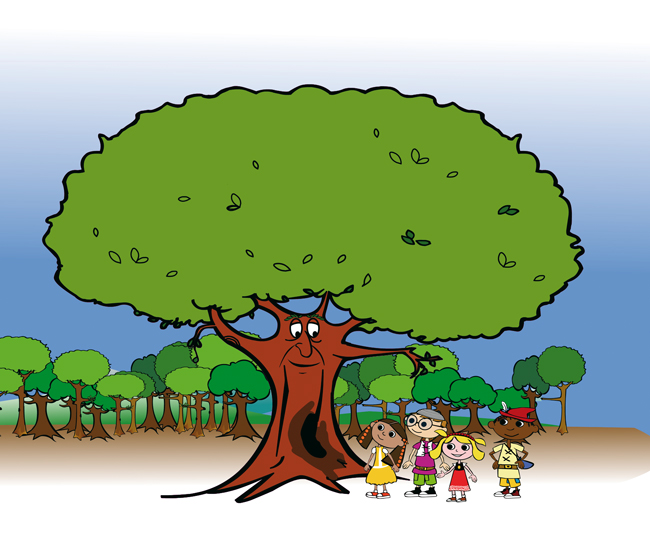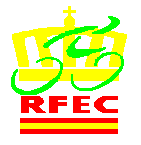ESSENTIAL QUESTION 3 LECTURE NOTES TOPICOBJECTIVE REVOLUTIONWAR FOR INDEPENDENCE
PERSON SPECIFICATION CLASS TEACHER ESSENTIAL DESIRABLEPERSON SPECIFICATION CLASS TEACHER 2018 ESSENTIAL DESIRABLE
PERSONAL SPECIFICATION – HOUSEKEEPER ESSENTIAL DESIRABLE GENERAL EDUCATIONAL
110415 SEVERE ATTACKS ON ESSENTIAL FREEDOMS IN UGANDA ON
19 ESSENTIAL MANTRAS FOR HOLY OBJECTS ESSENTIAL MANTRAS FOR
7 ESSENTIAL LATIN GRAMMAR CLAUSES 1 INTRODUCTION TO CLAUSES
Cornell Notes Template
Essential Question #3 Lecture Notes
|
Topic/Objective: Revolution/War for Independence (p. 75-98) |
Essential Question: How did Americans win the war for independence? |
|
Reduce & then Recite (Create questions which elicit critical thinking/Write questions directly across from the answers in your notes) |
Record for Review Write headings, key words, and vocabulary in colored pencil (or highlight!) Take sufficient notes with selective (not too much verbiage) & accurate paraphrasing Use bulleted lists and abbreviations Correctly sequence information |
|
Q) How did the Americans declare independence?
Q) (Create your own) ________________________________________________________________________________________________
Q) What early challenges did the colonists face?
Q) (Create your own) ________________________________________________________________________________________________
|
Vocabulary: revolution: refers to a movement, often violent to overthrow an old regime and effect complete fundamental change in the fundamental institutions of society blockade: seal off (a place) to prevent people or goods from entering or leaving mercenary: a professional soldier hired to serve in a foreign army guerrilla: a member of a small independent group taking part in irregular fighting, typically against larger regular forces siege: a military operation in which enemy forces surround a town or building, cutting off essential supplies, with the aim of compelling those inside to surrender Declaring Independence Following the outbreak of fighting at Lexington & Concord, a British writer published a pamphlet called ___________________________which convinced many colonists of the need for _______________________________ (pg. 77) Colonial leaders selected a committee to draft an official declaration of independence from ____________________________ (pg. 78) Committee of John Adams, Ben Franklin, Robert Livingston, and Roger Sherman worked with ________________________________ in writing the document The purpose of the document was to explain to the world why the colonies were ___________________________________ from Britain On July 2, Congress voted to make the colonies free and independent, and on ____________________________, the finished Declaration of Independence was presented and signed by colonial leaders (p. 79) There was no going back- should the Americans lose the war, the colonial leaders would likely be hung for __________________________ Early Course of WarColonists began the war greatly _____________________________ against Britain Britain had possibly the strongest military in the world at the time, and the colonies only had local ___________________________ for defense However, an early British victory, at Bunker Hill, at which they suffered huge losses, gave belief to _________________ that they could _______________ the British (pg. 75) The colonists were driven from New York in summer of 1776 following the ____________________________________ (pg. 82) __________________________ led a sneak attack on Christmas morning in 1776, famously crossing the Delaware River to capture a camp of German Hessians (____________________) for the Continental Army’s biggest victory to date (pg. 83) By winter of 1777, the Continental Army was exhausted, and spent the winter at _______________________________ in Pennsylvania The ________________________________ spent the winter of 1777 starving, freezing, and training for the second half of the war…. (pg. 89)
|
|
Reduce & Recite |
Record for Review |
|
Q) In what ways did women contribute to the war effort?
Q) What options did African-Americans have during the war?
Q) (Create Your Own) ________________________________________________________________________________________________
Q) How did Americans win the Battle of Yorktown?
|
Contributions to War EffortWomen (pg. 90) Many women _________ with the armies to care for wounded, wash clothes and cook Other women took over additional __________ at home, running ___________ and _____________________________ to support the cause while men were away African- Americans (pg. 91) A.A. were not allowed in the _____________________________ at first, but after Britain offered freedom to those who fought on their side, ___________________ ________________________ lobbied the Continental Congress to change the policy _______________ would serve in the army, and ______________ in the navy Some (especially in the south) fled to the British who had already banned ___________ Others hoped the _______________________ would bring the end of slavery in the __________________________ Native-Americans (pg. 93) To start the war, both the British and colonists tried to keep ________________ from getting involved However, as the war dragged on, the British successfully established a number of _____________________- convincing the natives a Patriot victory would mean more settlement of native lands How did the United States Win?The Continental Army used __________________ tactics and their knowledge of the terrain against the British _________________________________ established a complex spy network which helped the colonists plan their operations against the British ___________________ nations competing against Britain (especially _____________)- contributed money, soldiers, leadership, and naval support to the Americans Americans were fighting for ____________ and ______________- not something tangible that could be destroyed or conquered The King of England lost the war for ‘_____________________________’ in England- the war became increasingly unpopular as it went much longer than expected Decisive Battle: Yorktown Washington, with help from the French, laid a __________ for the British Army in Yorktown, VA The British Army moved into the city to re-supply, but found a French ________________preventing their supply drop, and were enclosed into the city by French and American troops, who laid _____________ to the city until the British surrender
|
|
Reflect & Summarize In your own words and in complete sentences, write a 5-6 sentence summary paragraph. Your summary should cover the main concepts of the notes, be accurate, and have adequate details. The goal of the summary is to answer the essential question from the reading assignment. |
|
|
|
|
|
|
|
|
|
|
|
|
|
|
|
|
|
|
|
|
|
|
|
|
|
A 58413 GENERIC DRUG POLICY AS CORNERSTONE TO ESSENTIAL
A PREPARTITION PAKISTAN (TRT 449) PAKISTAN IS ESSENTIALLY A
ACTION PLAN TEMPLATE FOR MAINTAINING ESSENTIAL SERVICEACTIVITY CRITICAL SUPPLIERS
Tags: essential question, the essential, topicobjective, notes, essential, revolutionwar, lecture, question, independence
- ZAŁĄCZNIK DO ZARZĄDZENIA NR 14492016 PREZYDENTA MST WARSZAWY Z
- GLOSSARY OF TEXAS A&M STUDENT AFFAIRS COMMON ACRONYMS AASLI
- EDUCACIÓN DE ADULTOS © FINALIDAD LA EDUCACIÓN DE PERSONAS
- ABRAZA LA TIERRA UN MOVIMIENTO QUE BUSCA REPOBLAR LAS
- PHONAESTHETIC CONSIDERATIONS FOR YOUR CONLANG ASK YOURSELF WHAT LANGUAGES
- BECAS Y AYUDAS UNA BECA O AYUDA ES TODA
- EXPRESIONES ALGEBRAICAS ECUACIONES DE PRIMER GRADO TEMA 6 –
- ANEXO II BESTELAKO LAGUNTZEN AITORPENA DECLARACIÓN DE AYUDAS
- 5 LISTOPAD 2020 R CZY MODELE DIAGNOSTYCZNE POWSTAŁE W
- SZKOŁA PODSTAWOWA NR 17 W RZESZOWIE DOSTOSOWANIE WYMAGAŃ EDUKACYJNYCH
- MODELO DE ACTA DE ASAMBLEA GENERAL ORDINARIA (EXCLUSIVAMENTE CON
- SQUID DISSECTION LAB NAME DATE CORE
- CURRICULUM VITAE PAULA ALEJANDRA AGUILERA ÑONQUEPAN PROFESOR INVESTIGADOR ENCARGADA
- CONDICIONES DE COMPRA DIVISION DE EJERCITO COMPRA DIRECTA AMPLIADA
- 1 PRIMER VEZAN ZA BDP PREMA PROIZVODNOM I RASHODNOM
- CABLESTAYED BRIDGES PRESENTATION OUTLINE BY CARMEN SEAN KEISHA IVAN
- BACKGROUND INFORMATION ON BRIDGE REGULATIONS PRINT A COPY AND
- PROJECT OVERVIEW THOUGHTFUL CLASSROOM STEP ONE IDENTIFY THE
- 201718FPM72 REGERINGSKANSLIET FAKTAPROMEMORIA 201718FPM72 FÖRORDNING OM EUROPEISKA ARBETSMYNDIGHETEN 201718FPM72
- CONCEJO DE TIEBAS C MAYOR 43 31398 TIEBAS (NAVARRA)
- SOLICITUD ASISTENTE HONORARIOA 20212022 APELLIDOS NOMBRE DNI DIRECCIÓN
- 9 CRIMINAL INJURIES COMPENSATION TRIBUNAL VICTIMS CHARTER WHAT YOU
- CONSEJERÍA DE EDUCACIÓN DIRECCIÓN GENERAL DE ORDENACIÓN E INNOVACIÓN
- LOKALNA AKCIJSKA GRUPA „KARAŠICA“ URED VALPOVO 31550 M GUPCA
- ESCOLES MINGUELLA DEPARTAMENT DE CIÈNCIES NATURALS I TECNOLOGIA ÀREA
- SEITE 0 CONTACTPERSOON TELEFOON HUUB DUBBELMAN +31302471347 MOBIEL +3165314
- BOERMA AWARD NOMINATION FORM 20162017 PLEASE SUBMIT ELECTRONICALLY BY
- 4 BỘ TÀI CHÍNH C ỘNG HÒA XÃ HỘI
- PROGRAMA LEY 26589 NUEVA LEY DE MEDIACIÓN CURSO DE
- ROK AKAD 20202021 WARSZAWADN22 LUTEGO 2021R SEM LETNI PRACOWNIA
ENLACES BIBLIOTECAS ESCOLARESFOMENTO DE LA LECTURA CC AA
COMPARISONCONTRAST MATRIX CATEGORIES OF COMPARISON NAMESTHINGSEVENTS NAMESTHINGSEVENTS NAMESTHINGSEVENTS DETAILS
 CO SŁYCHAĆ BIULETYN INFORMACYJNY 4 (06) DROGIE CZYTELNICZKI DRODZY
CO SŁYCHAĆ BIULETYN INFORMACYJNY 4 (06) DROGIE CZYTELNICZKI DRODZY SZANOWNI PAŃSTWO SERDECZNIE GRATULUJEMY WSZYSTKIM KANDYDATOM KTÓRZY ZOSTALI PRZYJĘCI
SZANOWNI PAŃSTWO SERDECZNIE GRATULUJEMY WSZYSTKIM KANDYDATOM KTÓRZY ZOSTALI PRZYJĘCI A LAMPIRAN IN KEPUTUSAN KEPALA DINAS PENANAMAN MODAL
A LAMPIRAN IN KEPUTUSAN KEPALA DINAS PENANAMAN MODALACUERDO SOBRE ASISTENCIA RELIGIOSA EN LAS FUERZAS ARMADAS ACUERDO
PROF CRISTINA ARANCIBIA CURSO 7º 2º AÑO 2020 UNANSE
HOUSING AND HEALTH IN OLDER PEOPLE AGEING IN PLACE
ÐÏÀ¡±ÁÞŸ W Y ÞŸŸŸ ] ^ ` A
 PRZEWIELEBNI KSIĘŻA PROBOSZCZOWIE! DRODZY BRACIA I SIOSTRY! STOWARZYSZENIE PRZYJACIÓŁ
PRZEWIELEBNI KSIĘŻA PROBOSZCZOWIE! DRODZY BRACIA I SIOSTRY! STOWARZYSZENIE PRZYJACIÓŁFURTHER TO YOUR INFORMATION REQUEST FOIEIR 1516514 PLEASE FIND
VORLESUNGSPLAN WINTERSEMESTER 201819 TERMIN ORT THEMA VORTRAGENDER DI 231018
Modelo de Solicitud Para Obtener un Permiso o Licencia
 EL ÁRBOL MÁGICO DE LAS PALABRAS ÍNDICE CASTELLANO 3
EL ÁRBOL MÁGICO DE LAS PALABRAS ÍNDICE CASTELLANO 3 new York Science Journal 20114(9) Delineation of Linear
new York Science Journal 20114(9) Delineation of LinearLEBEN IN DER GEMEINSCHAFT EMOTIONALE BILDUNG KOMPETENZZIELE AM
 CARBON NEUTRAL PUBLIC DISCLOSURE SUMMARY BRISBANE CITY COUNCIL REPORTING
CARBON NEUTRAL PUBLIC DISCLOSURE SUMMARY BRISBANE CITY COUNCIL REPORTING 17 30 APRIL 1998 ISSUE NO 101 CLICK
17 30 APRIL 1998 ISSUE NO 101 CLICK (ANEJO 8) REAL FEDERACION ESPAÑOLA DE CICLISMO COMITÉ NACIONAL
(ANEJO 8) REAL FEDERACION ESPAÑOLA DE CICLISMO COMITÉ NACIONALİSTANBUL İL SAĞLIK MÜDÜRLÜĞÜNE GÖNDERILMEK ÜZERE ………… İLÇE SAĞLIK